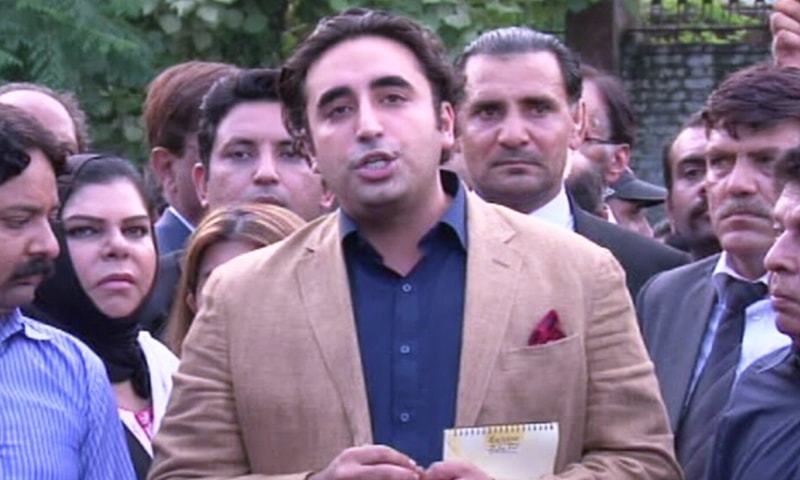M WAQAR..... "A man's ethical behavior should be based effectually on sympathy, education, and social ties; no religious basis is necessary.Man would indeed be in a poor way if he had to be restrained by fear of punishment and hope of reward after death." --Albert Einstein !!! NEWS,ARTICLES,EDITORIALS,MUSIC... Ze chi pe mayeen yum da agha pukhtunistan de.....(Liberal,Progressive,Secular World.)''Secularism is not against religion; it is the message of humanity.'' تل ده وی پثتونستآن
Tuesday, December 10, 2019
Video - #KhaqanSherDilAbbasi - Shahid Khaqan Abbasi Blasting Speech in NA
The civilians are rising. Beware generals.
— Taha Siddiqui (@TahaSSiddiqui) December 10, 2019
Former Pakistani prime minister walks out from #parliament session after telling the speaker he is powerless and has no courage to stand up [to #military] who many believe is persecuting his party the #PMLN. https://t.co/cs50MxmefQ
Pashtun Tahaffuz Movement (PTM) is on a peaceful quest to free all Pakistanis from oppression
 By Mohsin Dawar
By Mohsin DawarDecades of victimisation
How our call for constitutional rights enraged the military
From a peaceful sit-in to a senseless massacre
How victims became perpetrators
#HumanRightDay #Pakistan - OP-ED - Shireen Mazari and human rights
Yasser Latif Hamdani
No one gave Shireen Mazari the memo that she is neither the Foreign Minister nor the Defence Minister of Pakistan. She holds the portfolio of Human Rights Minister. The Human Rights in that Ministry pertain to the human rights of the hapless citizens of Pakistan and has no nexus with whatever else is happening elsewhere. In fact her jurisdiction does not even extend to Azad Jammu and Kashmir, which is supposed to have its own government.
Jinnah argument does not work in modern day Pakistan that is a majoritarian theocracy diametrically opposed to what he put forth as the vision for the country. Hence no PhDs are allowed in the country on his life, politics and work
Shireen Mazari also claimed that there is no persecution of Shias in Pakistan, claiming that she was a Shia herself. We are certainly not going to question her right to self identify as a Shia whether or not she is one but she went on to claim that sectarian violence happens on both sides. I would like to know how many Sunni doctors have been target killed and how Sunni mosques and Dargahs have been attacked by Shias in the 70 years? I am not even going to start with the official discrimination against Shias in all branches and arms of the government.
Pakistanis Rally to End 'Forced Disappearances' by Gov't
Dozens of people held a rally in Pakistan's capital on Tuesday to demand the government released what they say are hundreds of people who have been “forcibly disappeared” by security agencies in recent years.
Marking International Human Rights Day, activists and families of the missing called on Pakistani Prime Minster Imran Khan to release all detainees being held without due process.
Pakistan's government has repeatedly denied the allegations, claiming most of those who are missing went to neighboring Afghanistan to join militant groups.
In an emotional speech in front of Parliament, Amina Masood Janjua, who heads the Defense of Human Rights Pakistan group, said Khan needs to fulfill his campaign promise from last year, when he vowed to end the practice enforced disappearances after taking office.
Some at the rally held photos of relatives they say are detained. Two young girls carried handmade signs saying “I want my daddy back” in Urdu. Their father, Mohammad Usama Mirza, went missing in 2016, and like many other detainees he hasn't been charged or presented before any court.
Janjua herself is the wife of an alleged detainee, Masood Ahmad Janjua, a businessman who went missing in 2005 in the garrison city of Rawalpindi. Since then, she has been fighting a legal battle for his and other detainees' release. Her husband's whereabouts remain unknown.
Although Pakistani law prohibits detentions without court approval, security officials privately concede that intelligence agencies are holding an unspecified number of suspects. The officials say the detentions are because of ties to militant groups. The officials all spoke on condition of anonymity because they are not authorized to speak to media.https://www.nytimes.com/aponline/2019/12/10/world/asia/ap-as-pakistan-detainees.html
Bilawal Bhutto says Zardari should receive facilities every citizen is entitled to
Pakistan People’s Party Chairman Bilawal Bhutto said on Monday that his father and former president Asif Ali Zardari should receive the facilities that every citizen is entitled to .The PPP chairman was addressing media outside the Pakistan Institute of Medical Sciences (PIMS).
Bilawal said that he hopes that his father Asif Ali Zardari will get justice on December 11, the day the Islamabad High Court will take up Zardari’s bail plea filed on medical grounds.
Bilawal expressed hope that both his father and aunt Faryal Talpur will receive bail in the fake bank accounts case. Both the PPP leaders are facing jail-time due to the ongoing investigation in the fake accounts case.
In his media talk, Bilawal said that Zardari’s medical report will be presented in the court and his father will hopefully be shifted to a hospital in Karachi.
He said that the former president told him that the medical board has done his check-up.
“The selected government’s tactics to pressurize us are continuing, but we will not relinquish our struggle against them,” said the PPP chairman.
He reiterated that this year on his mother, Benazir Bhutto’s death anniversary, a gathering will take place at Liaquat Bagh, where he said that the ‘selected government’ will be called out.
“Nawaz Sharif went abroad despite being sentenced, while Zardari is inside prison without being indicted,” remarked Bilawal, adding that there is a difference between the two cases.
On Dec 3, Asif Ali Zardari approached the High Court seeking bail on medical grounds. The PPP leader is currently under treatment at the PIMS.
https://www.thenews.com.pk/latest/580964-bilawal-bhutto-says-zardari-should-receive-facilities-every-citizen-is-entitled-to

